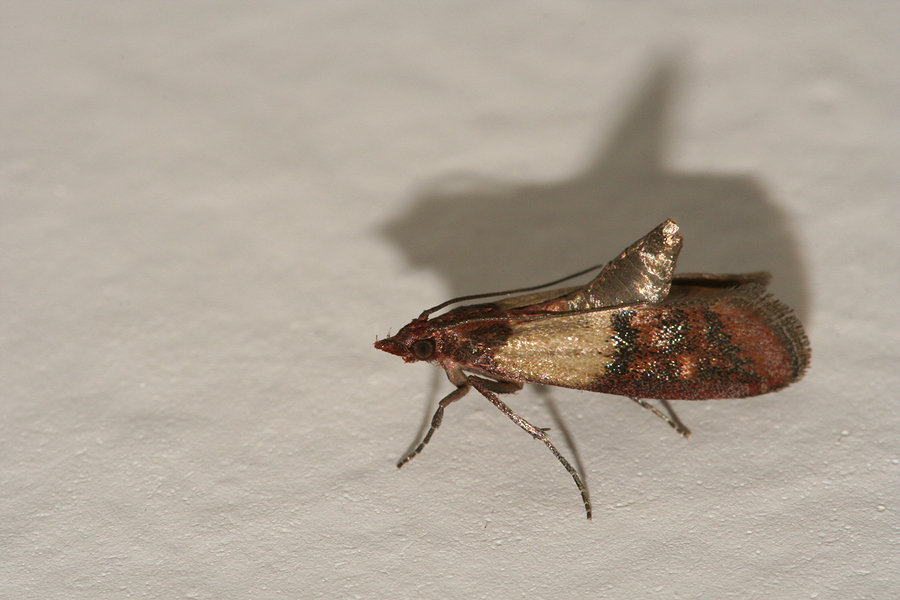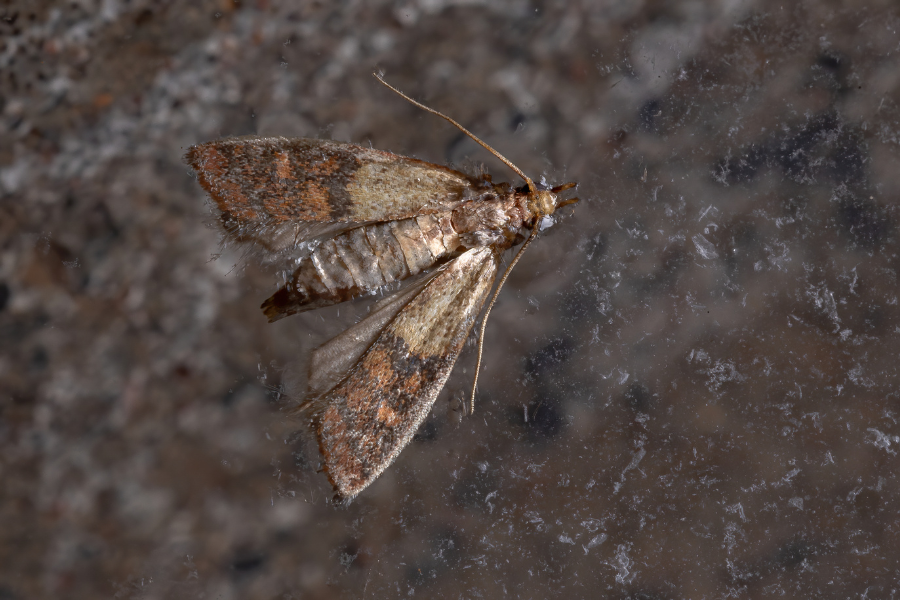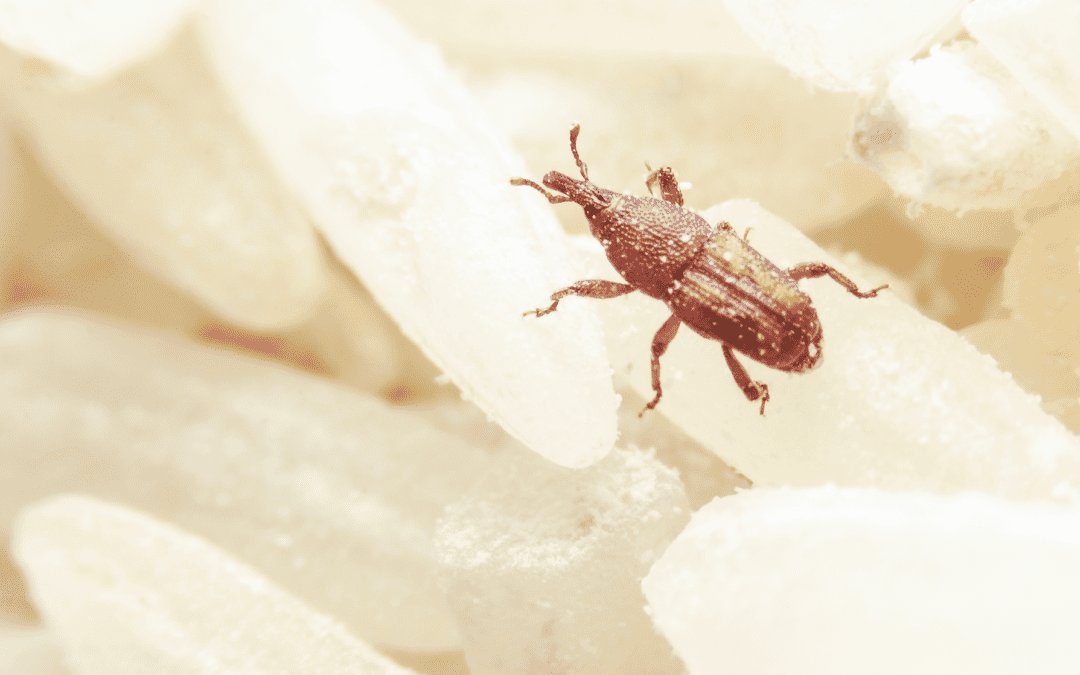READY TO GET STARTED?
REQUEST A FREE ESTIMATE
Fill out the form below or call (888) 466-7849 for a free, no-obligation estimate.


With the holidays nearing, now is the perfect time to ensure you don’t have pantry pests in your Tennessee home. Pantry pests are insects that like to invade your stored food products, often laying their eggs to reproduce and causing a full blow infestation. Let’s go over common pantry pests you can find in your home and how you can further prevent them.
The Indian meal moth is known for feeding on several types of food found in our pantry, including dried fruits and vegetables, grains, seeds, nuts, candies, and pet food. You can identify these pests by their two-toned wing pattern with a tan to copper oval-shaped body. These pests are highly attracted to light and anywhere they can find food.
This pantry pest has a dark brown body, six legs, and six saw-like teeth on each side of their bodies. Their narrow oval body shape allows them to crawl inside of packaging to eat, live, and reproduce. They prefer to feed on cereals, cake mixes, macaroni, and cookies, even though their names suggest they like grain!
If you suspect pantry pests have invaded your pantry, give your local Tennessee pest control company a call for a customized pest control plan and a free inspection!

The last thing you want to find in your pantry is pests. Known as pantry pests, these types of insects like to invade your stored food products and lay their eggs inside. What kind of creatures would want to invade our stored food? Let’s break it down.
Pests like beetles, weevils, and moths are the most likely culprits to invade your pantry. Although not the only kind to invade, these are the most common types that you will see and they include saw-toothed grain beetles, Indian meal moths, rice weevils, and drugstore beetles.
To know if you are dealing with a pantry pest infestation, be sure to check boxes of food for unusual things like eggs, larvae, and live beetles, moths, or weevils. These pests won’t be exclusively in open boxes, so make time to check most boxes of food.
There are two ways that these pests can find their way inside your Tennessee home. The first way involves flying or crawling in through exterior windows, doors, cracks, crevices, and other openings. The second way is coming in with your recently purchased dry food products. Keeping these in mind, here are a few pantry pest prevention tips to keep them away:
If you believe your pantry has been infiltrated by pantry pests, then give your local pest control company a call today for a free inspection!

It’s the season for cold weather, good food, and quality time spent with family. Don’t let pests ruin this special time, especially on Thanksgiving! Pantry pests are known to infiltrate dry goods that are key ingredients for this food-crazed holiday. Here are some tips to make sure pantry pests, or other insects, don’t sneak in to ruin your holidays.
If you see an increase in pest activity this time of year, call your local pest control company so you can have peace of mind during the holidays.

With summer finally here, it’s the perfect time to clean out old food in your pantry and prepare for the end of the year. Now is the perfect time to refresh the baking supplies and replace any snack bags that have been open for a while.
Pantry pests don’t cause structural damage to your home and don’t pose much of a threat to people or pets, but they can penetrate through plastic and cardboard, leaving food in your pantry vulnerable. Once a food source is affected, these pests can multiply quickly and can spread to other food items.
A good way to determine if you have pantry pests is if you notice beetle-like pests near food sources or moths flying around the kitchen. If you suspect you have pantry pests, inspect your dry food immediately, throw out anything infested, and do a thorough cleaning throughout the area.
If you suspect your kitchen has been invaded by pantry pests and need assistance with the problem, reach out to your local pest control company. A pest professional can assist with locating, eliminating, and providing suggestions for future pest prevention.